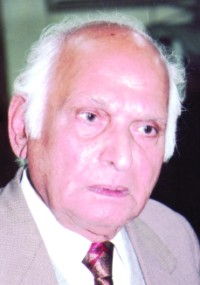
Basti by Intizar Husain

"The sound of slogans being shouted outside suddenly penetrated the room and scattered his memories in all direction."
This magical, tragic novel of Pakistan, written by the consensus greatest living writer of Urdu, Intizar Husain, traverses the history of the basti, the settlement, of Pakistan from the mythic era to the modern, from pre-Partition to "the burning city," to the time of signs. The central figure, Zakir--"he who remembers"--is at first a boy living in a kind of cosmopolitan golden age of non-sectarian peace and cooperation: "When the world was still all new, when the sky was fresh and the earth not yet soiled....." This is the world all of us remember, the one before now, not a real world at all, but the child's perfect vision of what could be, or should be: "What holds the earth steady?" Stories, and families, and young love....
But of course such an idyllic existence is just a child's dream, and "processions" of violence, sectarianism, and disillusionment fill most of the novel, though indirectly. Husain's style is oblique and subtle--in a society where men sit for hours in tea shops chatting amicably about subjects that often mask the true subject, where politics is shrouded in metaphor and misdirection, it is sometimes difficult to perceive the ways in which the world outside intrudes upon the world within:
"Where did the bomb fall? The various lanes of the city rise up in my imagination. I try to guess from which direction the sound of the explosion came, and which neighborhoods are located in that direction. Abba Jan is entirely absorbed in reading from the Quran, and my mind is wandering through the various lanes of the city. In Shamnagar I suddenly pause. That house is Shamnagar where we camped when we first came to Pakistan rises up in my imagination. Has the bomb fallen there? No, it shouldn't fall there. I have no emotional relationship with that house. The moment we left it, the house slipped out of my memory without leaving any imprint on my heart or mind...that house ought to be safe."
An indoor book, Basti studies human settlements on a microcosmic scale--not nations and cities, but rooms and houses and shops. Not great ideas about religion, but daily devotions; not economic theory, but quiet tasks (Zakir is a history teacher--who else would remember anything?), not war between India and Pakistan, but disagreements among neighbors. Basti's scale is small and imbued with magical thinking--the past obtrudes on the present in just the way the old buildings of British occupation fill the spaces of the new settlement of refugees from India.

Resolutely modernist in structure and tone, Basti moves quickly back and forth in time, from myth to history, from the psychological to the physical; Husain employs various narrative devices--interior monologue, diary entries, long snatches of dialogue in which speakers remain unidentified, direct description--in order to create a vibrant, dynamic story, one that mirrors the uncertainties and transformations of the place and time it describes. Basti is a book that frustrates, not in the art of it, which is nearly perfect, but in the constant thwarting of expectation--love, friendship, politics, all rise up and are then, one by one, brushed aside. Like the street marches that pass by the tea shop, the characters move but make no progress; time passes but toward what end?
"Why are you silent?" Irfan was gazing steadily at him.
"Silence." Afzal, placing a finger on his lips, signaled Irfan to be silent. "I think we will see a sign."
"A sign? What sign can there be now?" Irfan said with bitterness and despair.
 "Fellow, signs always come at these times, when all around--" he paused in the middle of his speech. Then he said in a whisper, "This is the time for a sign--
"Fellow, signs always come at these times, when all around--" he paused in the middle of his speech. Then he said in a whisper, "This is the time for a sign--And the novel ends. What is the sign, and when will it come?
"Intizar Husain (b. 1925) is a journalist, short-story writer, and novelist, widely considered the most significant living fiction writer in Urdu. Born in Dibai, Bulandshahr, in British-administered India, he migrated to Pakistan in 1947 and currently lives in Lahore. Besides Basti, he is the author of two other novels, Naya Gar (The New House), which paints a picture of Pakistan during the ten-year dictatorship of the Islamic fundamentalist General Zia-ul-Haq, and Agay Sumandar Hai (Beyond Is the Sea), which juxtaposes the spiraling urban violence of contemporary Karachi with a vision of the lost Islamic realm of al-Andalus. Collections of Husain’s celebrated short stories have appeared in English under the titles Leaves, The Seventh Door, A Chronicle of the Peacocks, and An Unwritten Epic." [from the New York Review of Books]
Basti, translated by Frances W. Pritchett, with an introduction by Asif Farrukhi, is published by New York Review Books
http://www.nybooks.com/books/imprints/classics/basti/
George Ovitt (3/3/13)
Basti, translated by Frances W. Pritchett, with an introduction by Asif Farrukhi, is published by New York Review Books
http://www.nybooks.com/books/imprints/classics/basti/
George Ovitt (3/3/13)
No comments:
Post a Comment